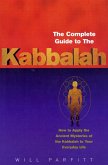Paganism comes from the Latin pagus (field) and paganus (pagan) meaning "peasant" or "rustic. As it originally refers to rural people it carries reference to polytheistic and nature-bound religions, rural religious traditions, and polytheism.
In antiquity religions that cultivated respect for the living and sacred forces of nature were practiced in Greco-Roman mythology and pre-Christian European and North African polytheistic traditions. In the Middle Ages, there was the evolution of paganism into the Christian religion that became official in the Empire, when Catholicism began to treat as "pagans" Romans who remained faithful to their ancient polytheistic religions and did not convert to Christianity. Paganism became synonymous with the idolatry of those who did not convert or were not baptized, a mere substitution for the term "gentile" that Jews used for those who were not of their religion or "infidels" that Muslims used to refer to non-Islamic people, called kafir and mushrik.
Paganism, at present, is a much misused term, as it refers to people who worship nature deities and has become a misleading synonym for polytheism or atheism. However, there are people not baptized Christians who are monotheists (Islam and Jews) and could never be considered pagans; if atheists even believe in deities, they cannot be called pagans. Ethnologists consider the term paganism inaccurate and prefer to use better, more accurate terms such as animism, pantheism, shamanism, and polytheism.
Dieser Download kann aus rechtlichen Gründen nur mit Rechnungsadresse in A, B, CY, CZ, D, DK, EW, E, FIN, F, GR, H, IRL, I, LT, L, LR, M, NL, PL, P, R, S, SLO, SK ausgeliefert werden.









